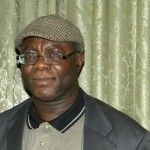
The decision by Senegal’s President Abdoulaye Wade to extradite former Chadian strongman Hissene Habré to N’Djamena, in the presence and under the supervision of representatives of African Union (AU) president Jean Ping, must be reckoned with mixed reaction (See “Alarm As Senegal [Is] To Extradite Ex-Chadian Dictator Habré” Modernghana.com 7/7/11).
First of all, the decision comes in the wake of Mr. Habré having lived in the Senegalese capital for two protracted decades as a political asylee, while the Dakar government drastically modified its existing penal code to include penalties for people convicted of crimes against humanity, with the sole purpose of enabling the Senegalese judicial authorities to accommodate the ousted bloody dictator.
Consequently, it also comes as rather bizarrely anti-climactic for President Wade to balk in the wake of millions of euros in judicial-support pledges for the trial of Mr. Habré in Senegal, where he is almost certainly guaranteed a fair trial, than his home country of Chad, where the long-deposed leader has already been handed several death sentences in absentia and is therefore, logically, not expected to receive a fair trial.
Significantly must also be promptly observed that while the Senegalese leader’s apparently adamant refusal to hand Mr. Habré over to the Belgian government may be aptly deemed to be nothing short of laudable, especially when Belgium’s blotchy colonial history is cast into perspective, nevertheless, Mr. Wade’s decision to return the former Chadian strongman to N’Djamena may not necessarily be the most constructive of its kind.
What is more, there is absolutely no plausible indication that the military general who ousted Mr. Habré, Gen. Idriss Deby, and who has continued to occupy the reins of governance in N’Djamena for as long as his predecessor has been in exile, is the kind of leader from whom the international community can objectively count upon to administer the kind of fair trial that is taken for granted in most democratic cultures, particularly if what is being globally sought is judicial justice, rather than raw revenge, as clearly appears to be the expectation of firebrand human rights activists like Mr. Reed Brody of Human Rights Watch.
Paradoxically, in the wake of the official announcement by President Wade that he was returning Mr. Habré to his native country, in order to enable the latter to properly answer to charges of heinous crimes against humanity, Mr. Brody, who has been at the forefront of the fervid campaign to bring Mr. Habré to justice, appeared to recoil with palpable anguish. “We want justice, not the guillotine,” Mr. Brody is reported to have told Agence France Presse.
Reliable media sources also indicate that President Wade’s decision to extradite Mr. Habré directly follows the adoption of a resolution by African heads of government at their most recent summit in the Equatorial Guinean capital of Malabo, calling upon the Wade government to expedite criminal proceedings against the deposed Chadian dictator, or promptly return the latter to the country where he stands accused of a multiplicity of untold atrocities against humanity.
Needless to say, it hardly ought to come as any great surprise that Mr. Wade’s Senegal would flatly refuse to prosecute the deposed Chadian dictator. Traditionally, African leaders have been all-too-willing to grant political asylum to their ousted counterparts elsewhere on the continent, perhaps, with their own equally blotchy leadership record and tentative positions uppermost in mind. What is more, while his may, indeed, not be anywhere near the sanguinary administrative record of Mr. Habré’s, in terms of gross human rights violations, nonetheless, in terms of fiscal impropriety, Mr. Wade maintains absolutely no credible edge over the deposed Chadian leader. And very likely, it is the searing glare of the judicial klieg-light that a Habré trial in Senegal might definitely shine on some of the unsavory aspects of the Wade regime that the 85-year-old flamboyant Senegalese leader may be trying to avoid. Recent anti-government turmoil in Senegal may well be another salient factor and reason to send Mr. Habré away.
What is quite clear, though, is that regardless of whether the deposed Chadian strongman is “led into a judicial abattoir,” as Mr. Allioune Tine, the renowned Senegalese human rights activist, would have the rest of the world believe, in N’Djamena, or is tried by a forensically impeccable court of law in Brussels, the stark fact remains that Mr. Habré has a preponderant chance of being sentenced to life or death. What the likes of Human Rights Watch’s Mr. Brody and RADDHO’s Mr. Tine appear to be most interested in is the rigorous prosecution of ex-President Habré by a conscience-salving judicial system that is widely deemed to be democratic, and not fundamentally as to whether, indeed, Mr. Habré could be forensically tied to any of the crimes for which he stands inextricably accused.
If the preceding contains any iota of validity, then, I say, by all means, Dr. Ping, “Bring Down The Guillotine!” Of course, I am also interested in who else gets to die with Mr. Habré, since as a substantive head of government, the deposed Chadian strongman also maintained a cabinet of willing collaborators with whom he perpetrated the litany of untold atrocities for which he stands accused.
Kwame Okoampa-Ahoofe, Jr., Ph.D., is Associate Professor of English, Journalism and Creative Writing at Nassau Community College of the State University of New York, Garden City. He is also a Governing Board Member of the Accra-based Danquah Institute (DI) and author of “The Obama Serenades” (Lulu.com, 2011).
E-mail: okoampaahoofe@optimum.net
